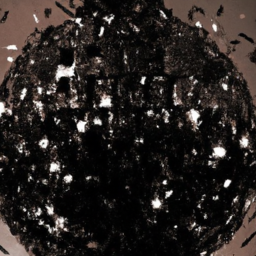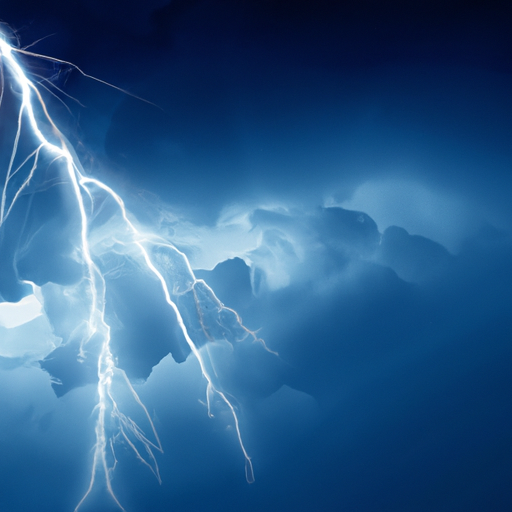Join us as we embark on a journey through the thought-provoking verses of William Blake, an English poet who fearlessly tackled social issues in his poems. Despite not receiving widespread recognition during his lifetime, Blake’s work has endured through the ages, captivating readers with its powerful messages. From the delicate beauty of “The Blossom” to the haunting elegance of “The Sick Rose,” Blake’s poems explore themes such as nature, anger, racism, and religion, inviting readers to engage in deep reflection. As we delve into Blake’s literary masterpieces, we will discover that these timeless verses continue to ignite passionate debates and offer new insights into the complex world we inhabit. So grab a cup of tea, settle in, and join us on this enlightening journey through the social issues lurking within the lines of William Blake’s poems.
Blake’s Background and Context
Blake’s life and career
William Blake, an English poet and artist, lived from 1757 to 1827. Despite his immense talent, Blake was not widely recognized or appreciated during his lifetime. He faced financial struggles and lived in relative obscurity, often creating his own prints and publishing his own books. Blake’s unique poetic style combined vivid imagery with mystical and spiritual themes, setting him apart from his contemporaries.
The social and political context of his time
Blake lived during a time of great social and political upheaval in England. The Industrial Revolution was in full swing, transforming the landscape and the lives of ordinary people. The rise of factories and the mass migration to urban areas brought about significant social issues, including poverty, inequality, and the dehumanization of laborers. Additionally, the American and French Revolutions stirred up revolutionary fervor and challenged the established order. These tumultuous events deeply influenced Blake’s work, as he sought to explore and critique the prevailing societal norms and structures.
Nature in Blake’s Poems
The representation of nature in his poetry
Nature holds significant importance in Blake’s poems, serving as a source of inspiration, reflection, and revelation. He portrays nature in all its beauty and complexity, capturing both its gentle allure and its terrifying power. Whether it is the tender blossoms in “The Blossom” or the fierce and majestic tiger in “The Tyger,” Blake’s vivid descriptions evoke a deep sense of awe and wonder.
The connection between nature and human emotions
Blake believed that nature reflected and amplified human emotions. In his poems, he often uses natural elements to convey the turbulence of human emotions, such as anger, sorrow, and joy. Through this connection, Blake shows how nature and human experiences are intertwined, highlighting the intimate relationship between individuals and the natural world.
The symbolism of natural elements in his poems
Blake frequently employs symbolism to infuse his poems with deeper meaning. Natural elements like flowers, trees, and animals serve as symbolic representations of various ideas and concepts. For example, the lamb represents innocence and purity, while the tiger symbolizes power and ferocity. By using these symbols, Blake adds layers of complexity to his poetry, inviting readers to interpret and engage with the profound themes he explores.
The Theme of Anger
Exploring the portrayal of anger in Blake’s poems
Anger is a recurrent theme in Blake’s work, and he portrays it in multifaceted ways. Sometimes anger is depicted as destructive and vengeful, as seen in “A Poison Tree,” where suppressed anger grows into a poisonous tree of resentment. In other poems, anger serves as a catalyst for change and rebellion against oppressive forces.
The different forms and expressions of anger
Blake’s poems reveal the diverse range of human anger, from personal grudges to the collective anger of oppressed individuals. He explores the depths of human emotions, delving into the complex and often contradictory nature of anger. Whether it is the burning rage of the downtrodden depicted in “London” or the wrathful response to injustice in “The Chimney Sweeper,” Blake’s portrayal of anger is both raw and thought-provoking.
The social implications of anger in his work
Anger in Blake’s poetry is not merely an individual emotion; it is also a reflection of the social and political conditions of his time. Through his depiction of anger, he sheds light on the injustices and inequality that plagued society. Blake’s poems serve as a critique of the oppressive systems and call for a society that recognizes and addresses the root causes of anger and unrest.
Race and Racism
Blake’s perspective on race and racial inequality
Blake’s perspective on race was progressive for his time. He openly condemned racial discrimination and challenged prevalent ideas of racial superiority. In poems such as “The Little Black Boy,” he addresses the experience of a young black boy, advocating for equality and emphasizing the universal nature of humanity.
The depiction of race in his poems
Blake’s poems often feature characters from different racial backgrounds, highlighting the diversity of human experiences. He aims to challenge stereotypes and promote understanding and empathy among people of different races. By giving voice to marginalized individuals, Blake challenges the social structures that perpetuate racial inequality.
Critiques of racism in Blake’s work
Blake’s critiques of racism are evident in his poems’ messages of unity and equality. He strives to dismantle the societal divisions based on race, emphasizing the inherent worth and dignity of all individuals, regardless of their racial background. Blake’s work serves as a powerful statement against racism and a call for a society that embraces diversity and rejects discrimination.
Religion and Spirituality
The religious themes and ideas present in Blake’s poetry
Religion and spirituality play a significant role in Blake’s poetry. He explores profound theological questions and offers unconventional perspectives on faith, challenging the traditional doctrines of organized religion. Blake’s work delves into themes of divine presence, cosmic order, and the mystical nature of human existence.
His critique of organized religion
Blake harbored a deep mistrust of organized religion, seeing it as a restrictive force that stifles individual freedom and spirituality. He criticized the institutionalized practices and doctrines that he believed hindered personal connection with the divine. Blake sought to promote a more personal and intimate relationship with God, emphasizing the potential for spiritual awakening outside the confines of established religious institutions.
The exploration of spirituality and mysticism
In his poems, Blake explores the realm of spirituality and mysticism, delving into the transcendent and supernatural aspects of human experience. He celebrates the power of imagination and intuition as pathways to divine knowledge. Blake’s mystical vision allows him to challenge conventional wisdom and offer alternative perspectives on the nature of reality and the spiritual realm.
Themes of Innocence and Experience
The contrasting themes of innocence and experience in Blake’s poems
One of Blake’s most renowned themes is the contrasting states of innocence and experience. Innocence represents a pure and untainted state of being, while experience signifies the loss of innocence and the acquisition of knowledge. His poetry explores the conflict between these two states and their implications for individuals and society.
The loss of innocence and the corruption of experience
Blake emphasizes the inevitability of losing one’s innocence and the subsequent corruption that arises from experience. He critiques the societal norms and structures that contribute to this corruption, whether it be through the exploitative practices of industrialization or the oppressive nature of authority figures. Blake’s poetry serves as a cautionary tale, reminding readers of the dangers of losing touch with one’s innate purity and succumbing to the corrupting forces of the world.
The social commentary embedded in these themes
The themes of innocence and experience in Blake’s poetry hold broader social implications. Blake uses these contrasting states to comment on the negative influence of society on individuals and the need for social reform. His work exposes the detrimental impact of societal constructs on human nature, advocating for a reevaluation of societal norms and a return to the inherent goodness of humanity.
The Social Critique of Industrialization
Blake’s observation of the negative effects of industrialization
One of Blake’s strongest criticisms lies in the negative impact of industrialization on society. He witnessed firsthand the dehumanizing effects of factories and the harsh conditions faced by laborers during the Industrial Revolution. Blake’s poems shed light on the exploitative practices and environmental degradation caused by the relentless pursuit of profit and progress.
The treatment of laborers and its impact on society
Blake’s exploration of the treatment of laborers reveals the injustices and hardships experienced by those caught in the machinery of industrialization. He exposes the exploitation of workers, condemning the oppressive working conditions, long hours, and meager wages. By highlighting the human cost of industrial progress, Blake urges society to question and address the dehumanizing aspects of this new era.
The dehumanizing aspects of the industrial revolution
Blake’s critique of industrialization goes beyond the treatment of laborers; he also touches upon the dehumanizing effects of this mechanical age on society as a whole. The mass production, standardization, and urbanization brought about by industrialization strip away individuality and personal connection. Blake’s poetry serves as a reminder of the importance of retaining our humanity and resisting the loss of our unique identities in the face of technological progress.
Love and Relationships
The exploration of love and romantic relationships in Blake’s poetry
Love, in all its dimensions, is a recurring theme in Blake’s poems. He explores the complexities and nuances of love, encompassing both romantic relationships and the broader concept of love as a powerful force for societal change. Blake’s poetry delves into the depths of human emotions, portraying the ecstasy, longing, and pain that often accompany love.
The societal norms and expectations related to love
Blake’s poetry challenges the societal norms and expectations surrounding love. He questions the traditional conventions of marriage, exploring different forms of love that extend beyond societal boundaries. Blake emphasizes the importance of love that is based on mutual respect, equality, and freedom rather than conforming to societal norms.
Love as a means of escape or rebellion against social constraints
Love, for Blake, is not only an individual experience but also a catalyst for social transformation. He views love as a powerful force that can transcend societal constraints and challenge oppressive systems. Blake’s poems promote love as a means of liberation, urging individuals to forge authentic connections that defy societal restrictions and lead to a more just and compassionate world.
Political and Power Imbalances
Blake’s critique of political structures and power imbalances
Blake’s poetry extensively critiques the political structures of his time, particularly the monarchy and the aristocracy. He challenges the concentration of power in the hands of the few and highlights the corrupting influence of unchecked authority. Blake calls for a more equitable distribution of power and advocates for the active participation of individuals in shaping their own destinies.
The abuse of power and its consequences
Blake exposes the detrimental consequences of the abuse of power in his poems. He depicts the suffering and oppression faced by the marginalized and disenfranchised in society, showcasing the consequences of a system that prioritizes the interests of the powerful over the well-being of all. His work serves as a reminder that unchecked power leads to corruption and the suppression of individual rights and freedoms.
The call for social and political justice
Throughout his poetry, Blake issues a passionate call for social and political justice. He believes that true justice can only be achieved through the dismantling of oppressive structures and the establishment of a society based on equality and fairness. Blake’s poems serve as a rallying cry for individuals to rise up against the injustices they face and work towards a more just and equitable world.
Continued Debate and Interpretation
The ongoing discussion of Blake’s poems and their social implications
Blake’s poems continue to spark scholarly debate and interpretation. His rich imagery, complex symbolism, and layered meanings invite multiple readings and perspectives. Scholars, critics, and readers alike engage in ongoing discussions to unravel the profound social implications embedded within his work.
Different interpretations and analyses of his work
Due to the expressive nature of Blake’s poetry, different interpretations of his poems have emerged over time. Some readers focus on the spiritual and mystical aspects of Blake’s work, while others emphasize the social and political critique he presents. The diversity of interpretations demonstrates the breadth and depth of Blake’s poetry and reinforces its enduring relevance.
The relevance of Blake’s social issues in contemporary society
Blake’s social issues remain relevant in contemporary society. The themes of inequality, the abuse of power, dehumanization, and the need for social justice resonate with the ongoing struggles and challenges faced by individuals and communities today. Blake’s poetry serves as a timeless reminder of the importance of addressing these societal issues and working towards a more equitable and compassionate world.



